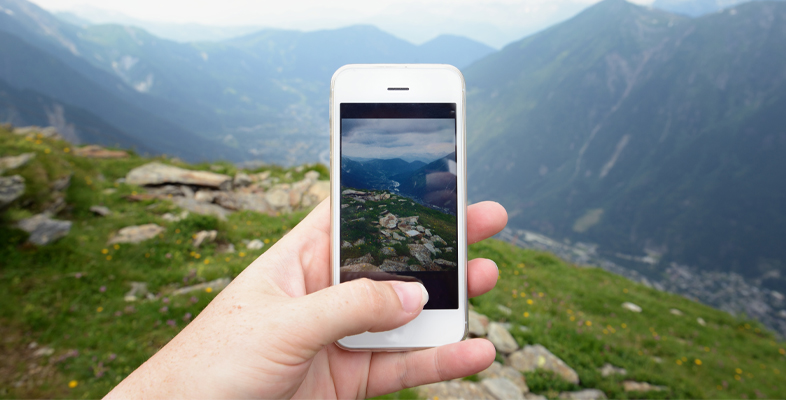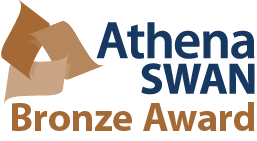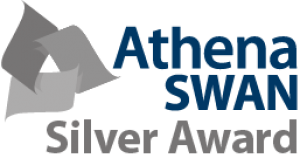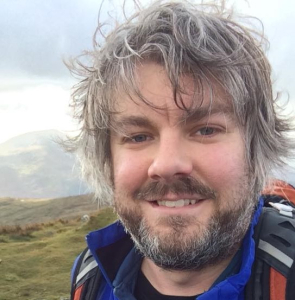You are here
- Home
- Dr Marcus Badger
Dr Marcus Badger

Professional biography
I’m a Senior Lecturer in Earth Sciences in the School of Environment, Earth and Ecosystem Sciences at The Open University. My research concentrates on exploring the links between the Earth’s carbon cycle and climate on Cenozoic timescales, and I deploy a range of tools including organic geochemistry, foraminiferal geochemistry and General Circulation Models.
I graduated from Jesus College, University of Oxford with an MEarthSci (Hons) in Earth Sciences in 2005. Whilst there I worked on the prospects of developing a sea surface temperature proxy using stable strontium isotopes in coccolithophores calcite analysed by multi-collector inductively coupled plasma mass spectrometry (MC-ICP-MS). The project was supervised by Dr Ros Rickaby.
In 2005 I moved to the school of Earth and Ocean Sciences, Cardiff University to conduct my doctoral research into middle Miocene climate dynamics, supervised by Dr Carrie Lear (Cardiff) and Prof Rich Pancost (Bristol). Using coupled organic and inorganic climate proxies, I constructed high resolution records of atmospheric pCO2 (alkenone and boron isotopes) and sea surface temperatures (foraminifera Mg/Ca and alkenone unsaturation indices). These proxy records, coupled with carbon system models and carbonate stable isotopes, allowed me insight into carbon cycle dynamics at a critical interval of major ice sheet growth in Antarctica. My PhD was awarded in 2010.
Following my PhD I moved to the Organic Geochemistry Unit in the School of Chemistry to work with Prof. Rich Pancost as a postdoc. I've worked on a number of grants with Rich, developing records climate and environmental change at various times through the Cenozoic, working mainly with hyphenated techniques (GC-MS, LC-MS, GC-C-IRMS).
In October 2011 I moved to the department of Earth Sciences for a stint as a lecturer, before returning to the OGU to take up a post as a Senior Research Associate in March 2013. Research during this time focussed on terrestrial methane cycling during Paleogene greenhouse climates, which involved collaborative work using the Unified Model with colleagues from the BRIDGE group (Paul Valdes) alongside organic geochemical approaches.
Much of my research focusses on sediments recovered from the ocean floor, and in autumn 2013 I took a short break from the OGU to participate in the TROPICS research expedition aboard the RRS James Cook (pictured above). Details of the expedition can be found here: http://tropics.blogs.ilrt.org/.
I moved to School of Environment, Earth and Ecosystem Sciences at The Open University in March 2016.
I went back to sea again in the summer of 2017, this time aboard the RRS Discovery to the Labrador Sea to participate in the European Research Council funded ICY-LAB project lead by Dr Kate Hendry from the University of Bristol. The expedition aims to increase our understanding of nutrient supply in the oceans. More details can be found on the project website: https://icylab.wordpress.com/.
Pronouns: he/him/his
Research interests
I study ancient climates using molecular fossils. When an organism dies, often components of the organic remains are preserved in sediments. By analysing molecules characteristic of particular organisms or environmental conditions (“biomarkers”) we can reconstruct ancient environmental parameters. My research primarily uses organic geochemical proxies analysed by GC, GC-MS, LC-MS and GC-C-IRMS to reconstruct sea surface temperatures (TEX86 and UK'37) and atmospheric pCO2 (alkenone δ13C) along with other key indicators of past climates.
I us a multi-proxy approach and so also utilise more ‘traditional’ inorganic proxies, based on the skeletal remains, such as planktic foraminiferal Mg/Ca, δ13C and δ18O. My research focuses on key periods in the Cenozoic (the last 66 million years) including the middle Miocene Climate Transition (when large ice sheets first appeared on East Antarctica), the warm Pliocene (one of the best partial analogues for future anthropogenic warmth) and the PETM (Paleocene-Eocene Thermal Maximum).
The fidelity of our proxy methods for reconstructing ancient climate change is essential if we are to use that understanding to help predict the future, so a lot of my current efforts concentrate on thoroughly testing our proxies.
New capabilities
I'm currently setting up new (to the OU) processes in our labs and am interested in finding new collaborators! We have fantastic facilities and capabilities to run foraminiferal trace metal and organic geochemical analyses including lipid analyses by GC, GC-MS and GC-C-IRMS and GDGT analyses by HPLC-MS. If you have exciting ideas and samples get in touch!
Accurate and Precise Alkenone Records of Atmospheric CO2 for the Pliocene and beyond to Inform the Future
I'm Principal Investigator for the NERC Standard Grant "Accurate and Precise Alkenone Records of Atmospheric CO2 for the Pliocene and beyond to Inform the Future" (NE/X000567/1).With colleagues from the University of Birminham, this three year project will take a thorough look at the alkenone palaeobarometer, and provide important new records of climate sensitivity in the Pliocene. You can read more about the project here.
Teaching interests
The Earth in My Pocket: An Introduction to Geology

I wrote the Future Learn MOOC "The Earth in My Pocket: An Introduction to Geology" with Dr Anne Jay in 2016. Get an introduction to geology, discover where materials that make up everyday objects come from and learn how to use them sustainably. Sign up now for the next run, or take the free OpenLean version anytime here
Science: Concepts and Practice (S112)
I'm a core author and, with Dr Louise Macbrayne, co-chair of the stage one module Science: Concepts and Practice (S112).The module provides a solid toolbox of knowledge, understanding, and skills for science students across the university. I wrote material on environmental change, living in a changing climate, and contributing material for other Earth science sections of the module.
Earth Processes (S309)
I'm a guest author on the stage three module Earth Processes (S309), and wrote sections on the Intergovernmental Panel on Climate Change (IPCC) for the science in society module in 2016.
Terrestrial Ecosystems (S397)
I was on the module team for the stage three module Terrestrial Ecosystems (S397). I helped to refresh what has been a very popular module and make it fit for online delivery.
Geology and Sustainability (S319)
I'm an auother on the new stage three module Geology and Sustainability. The module is the final piece of the puzzle for our nrew BSc Geology (R53) degree program, which I also lead.
Impact and engagement
Mythic Storytelling and the Changing Environment
I'm a a member of the project team for the Open Societal Challenges project Mythic Storytelling and the Changing Environment. With colleagues from the Faculty of Arts and Social Sciences and the performance collective Theatre of the Gentle Furies we are exploring how myth and storytelling in performance can help communicate our place in the climate emergency.
BBC Co-productions
I'm an academic consultant for BBC Inside Science, broadcast on BBC Radio 4, and BBC Our Coast, broadcast on BBC2. More details on Inside Science can be found here, and the OpenLearn Materials we produced to accompany Our Coast are here. I have been accademic consultant for BBC Springwatch in 2023 and 2024.
Climate Feedback
I'm a reviewer for Climate Feedback, a worldwide network of scientists sorting fact from fiction in climate change media coverage. You can find my reviews here.
Externally funded projects
Accurate and precise alkenone records of atmospheric CO2 for the Pliocene and beyond to inform the future
| Role | Start date | End date | Funding source |
|---|---|---|---|
| Lead | 06 Feb 2023 | 05 Feb 2026 | NERC Natural Environment Research Council |
The research proposes to make the estimates of carbon dioxide in the Pliocene better by: 1. Developing new techniques to better measure the chemical composition of the alkenones. 2. Using these new techniques, to check that the methods work well in the relatively recent past when we can cross-check the carbon dioxide estimates against bubbles of carbon dioxide preserved in ice cores. For this part of the project the team will use better selection of the places to look for these molecules based on recent research by the PI. 3. Once the Chemical Signatures of alkenones produces good estimates of carbon dioxide in the past, the project team will generate new, much more accurate estimates of carbon dioxide for an important part of the Pliocene where already have a good idea of what the temperature was. By doing these three things, it will provide a much better target for the climate models to try and hit, and by doing so, be able to figure out which of the climate models is most like the real Earth. This, in turn, will mean the team will know which climate model is likely to be best at predicting the temperature in 2100, which will allow the team as a global society to make informed choices about what needs to take place now. | |||
Landscape stories: engaging with environmental science through storytelling
| Role | Start date | End date | Funding source |
|---|---|---|---|
| Co-investigator | 25 Jul 2022 | 28 Feb 2023 | NERC Natural Environment Research Council |
We will work with a grassroots ethnic minority walking organisation to co-design walking routes that showcase aspects of the geological, landscape and ecological evolution of their local area that specifically link to OU research. This will: • Improve visibility of EES (and EES careers) within diverse communities who are under-represented in EES research • Engage these communities in cutting-edge EES from the Open University • Encourage confidence in walk leaders to communicate the science of the environment to their walk participants. • Train Earth/environmental scientists in mixed-methods approaches to public engagement evaluation | |||
Walking the Walk: Co-producing approaches to diversifying participation in Earth and environmental science education and careers
| Role | Start date | End date | Funding source |
|---|---|---|---|
| Lead | 01 Dec 2021 | 30 Jun 2022 | NERC Natural Environment Research Council |
For many people working in the environmental sciences today, the first spark of interest in the field came from experiences in nature. Whether walking, hiking or visiting the coast, immersion in the natural world can often plant the seeds of curiosity that lead to a lifelong desire to know more about how and why it works. In the UK, much of the natural “the countryside” is perceived as an overwhelmingly “white” space, hostile to people from non-white backgrounds. Not only does this mean that for many that seed is never planted, but the lack of familiarity with experiences in “the outdoors” means the fieldwork seen as necessary for an environmental education (and commonly required for accredited degree programs) presents a barrier to degree level study. This is a major problem for the field, as environmental impacts such as those driven by climate change affect everyone. Financial, cultural and opportunity barrier to accessing the outdoors, are recognised by both environmental organisations and grassroots groups. This project will bring together environmental scientists and grassroot community groups to tackle barriers in order to make outdoor learning accessible to all. We will test approaches to bring environmental science learning directly to those trying to make the UK countryside a more inclusive environment and learn from the experiences of both environmental scientists and activist groups in spending time immersed in nature. | |||
Publications
Journal articles
Spatial and Temporal Patterns in Petrogenic Organic Carbon Mobilisation during the Paleocene-Eocene Thermal Maximum (2024-02)
Hollingsworth, Emily H; Elling, Felix J; Badger, Marcus; Pancost, Richard; Dickson, Alexander; Rees-Owen, Rhian L.; Papadomanolaki, Nina Maria; Pearson, Ann; Sluijs, Appy; Freeman, Katherine H; Baczynski, Allison A; Foster, Gavin L; Whiteside, Jessica and Inglis, Gordon N.
ESS Open Archive, 39, Article e2023PA004773(2)
Spatial and Temporal Patterns in Petrogenic Organic Carbon Mobilization During the Paleocene‐Eocene Thermal Maximum (2024-01-31)
Hollingsworth, E. H.; Elling, F. J.; Badger, M. P. S.; Pancost, R. D.; Dickson, A. J.; Rees‐Owen, R. L.; Papadomanolaki, N. M.; Pearson, A.; Sluijs, A.; Freeman, K. H.; Baczynski, A. A.; Foster, G. L.; Whiteside, J. H. and Inglis, G. N.
Paleoceanography and Paleoclimatology, 39, Article e2023PA004773(2)
Toward a Cenozoic history of atmospheric CO2 (2023)
Hönisch, Bärbel; Royer, Dana L.; Breecker, Daniel O.; Polissar, Pratigya J.; Bowen, Gabriel J.; Henehan, Michael J.; Cui, Ying; Steinthorsdottir, Margret; McElwain, Jennifer C.; Kohn, Matthew J.; Pearson, Ann; Phelps, Samuel R.; Uno, Kevin T.; Ridgwell, Andy; Anagnostou, Eleni; Austermann, Jacqueline; Badger, Marcus; Barclay, Richard S.; Bijl, Peter K.; Chalk, Thomas B.; Scotese, Christopher R.; de la Vega, Elwyn; DeConto, Robert M.; Dyez, Kelsey A.; Ferrini, Vicki; Franks, Peter J.; Giulivi, Claudia F.; Gutjahr, Marcus; Harper, Dustin T.; Haynes, Laura L.; Huber, Matthew; Snell, Kathryn E.; Keisling, Benjamin A.; Konrad, Wilfried; Lowenstein, Tim K.; Malinverno, Alberto; Guillermic, Maxence; Mejía, Luz María; Milligan, Joseph N.; Morton, John J.; Nordt, Lee; Whiteford, Ross; Roth-Nebelsick, Anita; Rugenstein, Jeremy K. C.; Schaller, Morgan F.; Sheldon, Nathan D.; Sosdian, Sindia; Wilkes, Elise B.; Witkowski, Caitlyn R.; Zhang, Yi Ge; Anderson, Lloyd; Beerling, David J.; Bolton, Clara; Cerling, Thure E.; Cotton, Jennifer M.; Da, Jiawei; Ekart, Douglas D.; Foster, Gavin L.; Greenwood, David R.; Hyland, Ethan G.; Jagniecki, Elliot A.; Jasper, John P.; Kowalczyk, Jennifer B.; Kunzmann, Lutz; Kürschner, Wolfram M.; Lawrence, Charles E.; Lear, Caroline H.; Martínez-Botí, Miguel A.; Maxbauer, Daniel P.; Montagna, Paolo; Naafs, B. David A.; Rae, James W. B.; Raitzsch, Markus; Retallack, Gregory J.; Ring, Simon J.; Seki, Osamu; Sepúlveda, Julio; Sinha, Ashish; Tesfamichael, Tekie F.; Tripati, Aradhna; van der Burgh, Johan; Yu, Jimin; Zachos, James C. and Zhang, Laiming
Science, 382(6675)
Alkenone isotopes show evidence of active carbon concentrating mechanisms in coccolithophores as aqueous carbon dioxide concentrations fall below 7 μmol L−1 (2021)
Badger, Marcus P. S.
Biogeosciences, 18(3) (pp. 1149-1160)
The biogeochemical impact of glacial meltwater from Southwest Greenland (2019-09)
Hendry, Katharine R.; Huvenne, Veerle A.I.; Robinson, Laura F.; Annett, Amber; Badger, Marcus; Jacobel, Allison W.; Chin Ng, Hong; Opher, Jacob; Pickering, Rebecca A.; Taylor, Michelle L.; Bates, Stephanie L.; Cooper, Adam; Cushman, Grace G.; Goodwin, Claire; Hoy, Shannon; Rowland, George; Samperiz, Ana; Williams, James A.; Achterberg, Eric P.; Arrowsmith, Carol; Alexander Brearley, J.; Henley, Sian F.; Krause, Jeffrey W.; Leng, Melanie J.; Li, Tao; McManus, Jerry F.; Meredith, Michael P.; Perkins, Rupert and Malcolm S. Woodward, E.
Progress in Oceanography, 176, Article 102126
A Predictive Algorithm For Wetlands In Deep Time Paleoclimate Models (2019-04-04)
Wilton, David J.; Badger, Marcus; Kantzas, Euripidies P.; Pancost, Richard D.; Valdes, Paul J. and Beerling, David J.
Geoscientific Model Development, 12 (pp. 1351-1364)
Insensitivity of alkenone carbon isotopes to atmospheric CO2 at low to moderate CO2 levels (2019-03-27)
Badger, Marcus; Chalk, Thomas B; Foster, Gavin L; Bown, Paul R; Gibbs, Samantha J; Sexton, Philip; Schmidt, Daniela N; Pälike, Heiko; Mackensen, A and Pancost, Richard D
Climate of the Past, 15 (pp. 539-554)
Correspondence: No substantial long-term bias in the Cenozoic benthic foraminifera oxygen-isotope record (2018-07-23)
Evans, David; Badger, Marcus P. S.; Foster, Gavin L.; Henehan, Michael J.; Lear, Caroline H. and Zachos, James C.
Nature Communications, 9, Article 2875
Causes of ice-age intensification across the Mid-Pleistocene Transition (2017-12-12)
Chalk, Thomas B.; Hain, Mathis P.; Foster, Gavin L.; Rohling, Eelco J.; Sexton, Philip F.; Badger, Marcus P.; Cherry, Soraya G.; Hasenfratz, Adam P.; Haug, Gerald H.; Jaccard, Samuel L.; Martínez-García, Alfredo; Pälike, Heiko; Pancost, Richard D. and Wilson, Paul A.
Proceedings of the National Academy of Sciences of the United States of America, 114 (pp. 13114-13119)
Hydrological and associated biogeochemical consequences of rapid global warming during the Paleocene-Eocene Thermal Maximum (2017-08-12)
Carmichael, Matthew J.; Inglis, Gordon, N.; Badger, Marcus P.S.; Naafs, B. David A.; Behrooz, Leila; Remmelzwaal, Serginio; Monteiro, Fanny M.; Rohrssen, Megan; Farnsworth, Alexander; Buss, Heather L.; Dickson, Alexander J.; Valdes, Paul J.; Lunt, Daniel J. and Pancost, Richard D.
Global and Planetary Change, 157 (pp. 114-138)
The BRIDGE HadCM3 family of climate models: HadCM3@Bristol v1.0 (2017-02-08)
Valdes, Paul J.; Armstrong, Edaward; Badger, Marcus P.S.; Bradshaw, Catherine D.; Bragg, Fran; Davies-Barnard, Taraka; Day, Jonathan J.; Farnsworth, Alex; Hopcroft, Peter O.; Kennedy, Alan T.; Lord, Natalie S.; Lunt, Dan J.; Marzocchi, Alice; Parry, Louise M.; Roberts, William H.G.; Stone, Emma J.; Tourte, Gregory J.L. and Williams, Jonny H.T.
Geoscientific Model Development, 10 (pp. 3715-3743)
Newfoundland Neogene sediment drifts: transition from the Paleogene greenhouse to the modern icehouse (2015-05-29)
Friedrich, O.; Norris, R. D.; Wilson, P. A.; Opdyke, B. N.; workshop participants, ; Badger, Marcus and Sexton, Philip
Scientific Drilling, 19 (pp. 39-42)
Plio-Pleistocene climate sensitivity evaluated using high-resolution CO2 records (2015-02-05)
Martinez-Botí, M. A.; Foster, G. L.; Chalk, T. B.; Rohling, E. J.; Sexton, P. F.; Lunt, D. J.; Pancost, R. D.; Badger, M. P. S. and Schmidt, D. N.
Nature, 518(7537) (pp. 49-54)
Three dimensional coupled model approaches to terrestrial methane cycling during Paleogene greenhouse climates (2014-07)
Badger, Marcus P.S.; Singarayer, Joy S.; Valdes, Paul J. and Pancost, Richard D.
Rendiconti online della Società Geologica Italiana, 31 (pp. 21-22)
Extreme warming of tropical waters during the Paleocene-Eocene Thermal Maximum (2014)
Aze, T.; Pearson, P. N.; Dickson, A.J.; Badger, M.P.S.; Bown, P. R.; Pancost, R. D.; Gibbs, S. J.; Huber, B. T.; Leng, M. J.; Coe, A.L.; Cohen, A.S. and Foster, G. L.
Geology, 42(9) (pp. 739-742)
High-resolution alkenone palaeobarometry indicates relatively stable pCO2 during the Pliocene (3.3-2.8 Ma) (2013-10-23)
Badger, Marcus P.S.; Schmidt, Daniela N.; Mackensen, Andreas and Pancost, Richard D.
Philosophical Transactions of the Royal Society A: Mathematical, Physical and Engineering Sciences, 371, Article 20130094(2001)
The response of calcifying plankton to climate change in the Pliocene (2013-09-30)
Davis, C. V.; Badger, M. P. S.; Bown, P. R. and Schmidt, D. N.
Biogeosciences, 10(9) (pp. 6131-6139)
Biogeochemistry: Ancient algae crossed a threshold (2013-08-29)
Pancost, Richard D.; Badger, Marcus P. S. and Reinfelder, John
Nature, 500(7464) (pp. 532-533)
CO2 drawdown following the middle Miocene expansion of the Antarctic Ice Sheet (2013)
Badger, Marcus P.S.; Lear, Caroline H.; Pancost, Richard D.; Foster, Gavin L.; Bailey, Trevor R.; Leng, Melanie J. and Abels, Hemmo A.
Paleoceanography, 28(1) (pp. 42-53)
Determining how atmospheric carbon dioxide concentrations have changed during the history of the Earth (2011-12)
Badger, Marcus P. S.; Pancost, Richard D. and Harrison, Timothy G.
School Science Review, 93(343) (pp. 49-57)
Conference items
Exploring perspectives of minoritized community walking group leaders to make access to nature more equitable, diverse and inclusive (2023-04-14)
Holliman, Richard; Smith, Kelly; Khatwa, Anjana; Warren, Clare; Araya, Yoseph; Ansine, Janice and Badger, Marcus
In : International PCST Conference : Creating Common Ground (11-14 Apr 2023, Rotterdam)
Plio-Pleistocene productivity reconstructions in the Indian Monsoon region (2022-08)
Gray, Emmeline; Anand, Pallavi; Badger, Marcus; Bolton, Clara; Leng, M. J. and Murayama, Masafumi
In : GC10-Pliocene-44: The Warm Pliocene: Bridging the geological data and modelling communities (23-26 Aug 2022, Leeds, UK)
Evidence for methane cycling in Paleogene terrestrial and marginal marine sediments (2015-08-21)
Rohrssen, M.; Inglis, G. N.; Badger, M. P. S.; Naafs, B. D. A.; Kennedy, E. M.; Collinson, M. E.; Singh, P. K.; Singh, M. P. and Pancost, R. D.
In : Goldschmidt Conference 2015 (16-21 Aug 2015, Prague, Czech Republic)
Low sensitivity of Alkenone carbon isotopes to atmospheric CO2 during the Plio-Pleistocene (2015-08-16)
Pancost, Richard D.; Badger, Marcus P. S.; Chalk, Thomas B.; Foster, Gavin L.; Bown, Paul R.; Gibbs, Samantha J.; Sexton, Philip F.; Pälike, Heiko and Mackensen, Andreas
In : Goldschmidt Conference 2015 (16-21 Aug 2015, Prague, Czech Republic)
Coupled model-data approach to terrestrial methane cycling during Paleogene greenhouse climates (2015-08-16)
Badger, M.P.S; Rohrssen, M.; Inglis, G.N.; Naafs, B.D.A.; Pancost, R.D.; Valdes, P.J.; Wilton, D.J.; Beerling, D.J.; Collinson, M.E.; Kennedy, E.M.; Singh, P.K. and Singh, M.P.
In : Goldschmidt Conference 2015 (16-21 Aug 2015, Prague, Czech Republic)
Biomarker approaches to greenhouse gas estimations through the Cenozoic: Recent developments and future directions (2015)
Badger, Marcus Peter Sebastian; Chalk, Thomas Ben; Foster, Gavin L.; Bown, Paul R.; Gibbs, Samantha; Sexton, Philip F.; Schmidt, Daniela N.; Pälike, Heiko; Mackensen, Andreas and Pancost, Richard D.
In : AGU Fall Meeting (14-18 Dec 2015, San Francisco, California)
Lignites as archives of ancient climate-biogeochemistry dynamics (2014)
Pancost, R. D.; Inglis, G. N.; Badger, M. P. S.; Naafs, B. D. A.; Zheng, Y.; Collinson, M. E. C.; Talbot, H.; Bischoff, J.; Carmichael, M. and Lunt, D.
In : Goldschmidt Conference 2014 (8-13 Jun 2014, Sacramento, U.S.A.)
Multiple pools of reduced carbon can be released during hyperthermals (2013-07)
Pancost, R. D.; Badger, M. P. S.; Naafs, B. D. A.; Froehner, S.; Castro, J. M.; De Gea, G.; Quijano, M. L.; Aguado, R.; Lowson, C. and Ridgwell, A. J.
In : Goldschmidt Conference 2013 (25-30 Aug 2013, Florence, Italy) (pp. 1918-1918)
New insights to the middle Miocene pCO2 problem (2013)
Badger, M. P.; Foster, G. L.; Lear, C. H.; Pancost, R. D.; Bailey, T. R.; Leng, M. J. and Abels, H. A.
In : AGU Fall Meeting (9-13 Dec 2013, San Francisco, CA, USA)
Three dimensional coupled model approaches to terrestrial methane cycling during Paleogene greenhouse climates (2013)
Badger, M. P.; Singarayer, J.; Valdes, P. J.; Inglis, G. N. and Pancost, R. D.
In : AGU Fall Meeting (9-13 Dec 2013, San Francisco, CA, USA)
The importance of accurate and precise temperature reconstruction for alkenone paleobarometry (2012-11-01)
Badger, Marcus P. S. and Pancost, Rich D.
In : Goldschmidt Conference 2012 (24-29 Jun 2012, Montreal, Canada) (p 1446)
δ11B-based atmospheric CO2 records during the Pliocene at orbital resolution (2012)
Martinez-Boti, Miguel A.; Foster, Gavin L.; Badger, Marcus P. S.; Pancost, Richard D.; Schmidt, Daniela N. and Lunt, Daniel J.
In : Goldschmidt Conference 2012 (24-29 Jun 2012, Montreal, Canada) (pp. 2074-2074)
Orbital Scale alkenone based CO2 records across the Pliocene intensification of Northern hemisphere glaciation (2011-06)
Badger, M. P. S.; Bowler, G. C.; Davis, C.; Hull, A. C.; Potts, M. D. A.; Schmidt, D. N. and Pancost, R. D.
In : Goldschmidt 2011 (14-19 Aug 2011, Prague, Czech Republic) (pp. 467-467)
Atmospheric Carbon Dioxide and Climate Following the Middle Miocene Expansion of the East Antarctic Ice Sheet (2008)
Badger, M. P.; Lear, C. H.; Pancost, R. D.; Bailey, T. R.; Leng, M. J. and Abels, H. A.
In : AGU Fall Meeting 2008 (15-19 Dec 2008, San Francisco, California, USA)
Thesis
Middle Miocene carbon cycle dynamics: A multi-proxy approach (2010)
Badger, Marcus
PhD thesis Cardiff University
Other
Co-constructing ‘third spaces’ for engagement between minoritized community groups and environmental scientists (2024-02-27)
Holliman, Richard; Ludhra, Geeta; Warren, Clare J.; Khatwa, Anjana; Araya, Yoseph; Smith, Kelly; Ansine, Janice and Badger, Marcus P.S.
EarthArXiv




